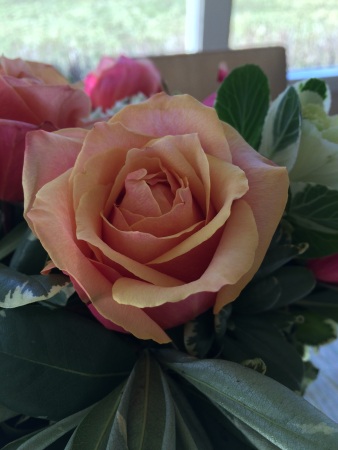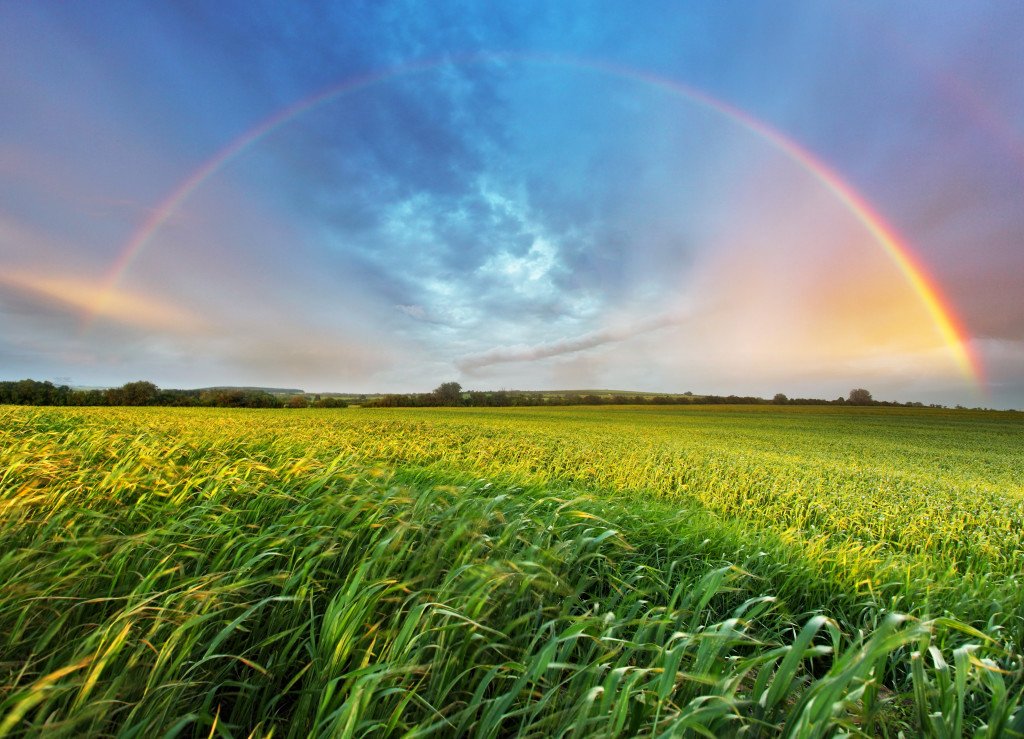Somewhere over the rainbow, way up high,
There’s a land that I hear of once in a lullaby.
Somewhere over the rainbow, skies are blue,
And the dreams that you dare to dream really do come true.Someday I’ll wish upon a star
And wake up where the clouds are far
Behind me.
Where troubles melt like lemon drops
Away above the chimney tops
That’s where you’ll find me.Somewhere over the rainbow, bluebirds fly.
Birds fly over the rainbow. Why then, oh, why can’t I?
If happy little bluebird fly
Beyond the rainbow, why, oh, why can’t I?
– Over the Rainbow, lyrics by Y. Harburg
After being chided by Auntie Em, Dorothy Gale said “‘Some place where there isn’t any trouble?’ Do you suppose there is such a place, Toto? There must be. It’s not a place you can get to by a boat, or a train. It’s far, far away. Behind the moon, beyond the rain…” (Florence Ryerson and Edgar Allan Woolf, screenplay for Wizard of Oz).
This song was once an anthem of sorts for gay men in the U.S. Drag shows often ended with this tune or with I did it my way. The drag queens on stage lip synched or, great voice or not, sang the song along with Judy Garland or Frank Sinatra. At times, wigs and false eye lashes were removed during the last verse.
 Over the years I have heard LGBT people talking about their community’s use of this song as silly, superfluous, or quaint. It is argued that a wistful childish song is no anthem for a robust community; it is not going to move our liberation forward. Some voice that as long as drag queens or drag kings get on stage and tearfully or happily perform this song, our equal treatment under the law will not advance, or it will only move forward despite their actions.
Over the years I have heard LGBT people talking about their community’s use of this song as silly, superfluous, or quaint. It is argued that a wistful childish song is no anthem for a robust community; it is not going to move our liberation forward. Some voice that as long as drag queens or drag kings get on stage and tearfully or happily perform this song, our equal treatment under the law will not advance, or it will only move forward despite their actions.
When describing enslaved African American people singing 19th century spirituals, Frederick Douglas said, “…it was a great mistake to suppose them happy because they sometimes made those joyful noises. The songs of the slaves represented their sorrows, rather than their joys. Like tears, they were a relief to aching hearts.” Their songs sometimes also told of the liberation, their dreams and aspirations, in concrete terms that, if spoken without music, would be suspect at best. They could potentially have resulted in death or dismemberment. The spiritual was dangerously public in a way.
Whether sung by Patti LaBelle, Israel Kamakawiwo’ole, Judy Garland, or a local performer, Somewhere over the Rainbow, still invites LGBT people to imagine more for ourselves and our community. Its lemon drops speak to the sweetness of the imagined future and the bitterness of the long wait. The story tells, not of the hoped-for leadership of Moses or God, but of an all-powerful wizard, who can grant our wishes. In the end, we all recognize that the dream is within our grasp. The wizard may have his hands on the levers of politics, but fueled by our own steam, we can recognize that there is no place like home. The transformation of civil society is up to us. Our liberation will not come easily and things won’t just get better.
Today I celebrate with pride those drag performers who helped preserve our dreams of liberation while hurling the terms sissy, dyke, faggot, or butch back at those who used them to try to bully them and us into subjugation.
About the Author
Gary Hollander is President and CEO of Diverse and Resilient and Non-Profit Organization Management Consultant. He has been a leader in the GLBT Movement for several decades.
He created a blog called


